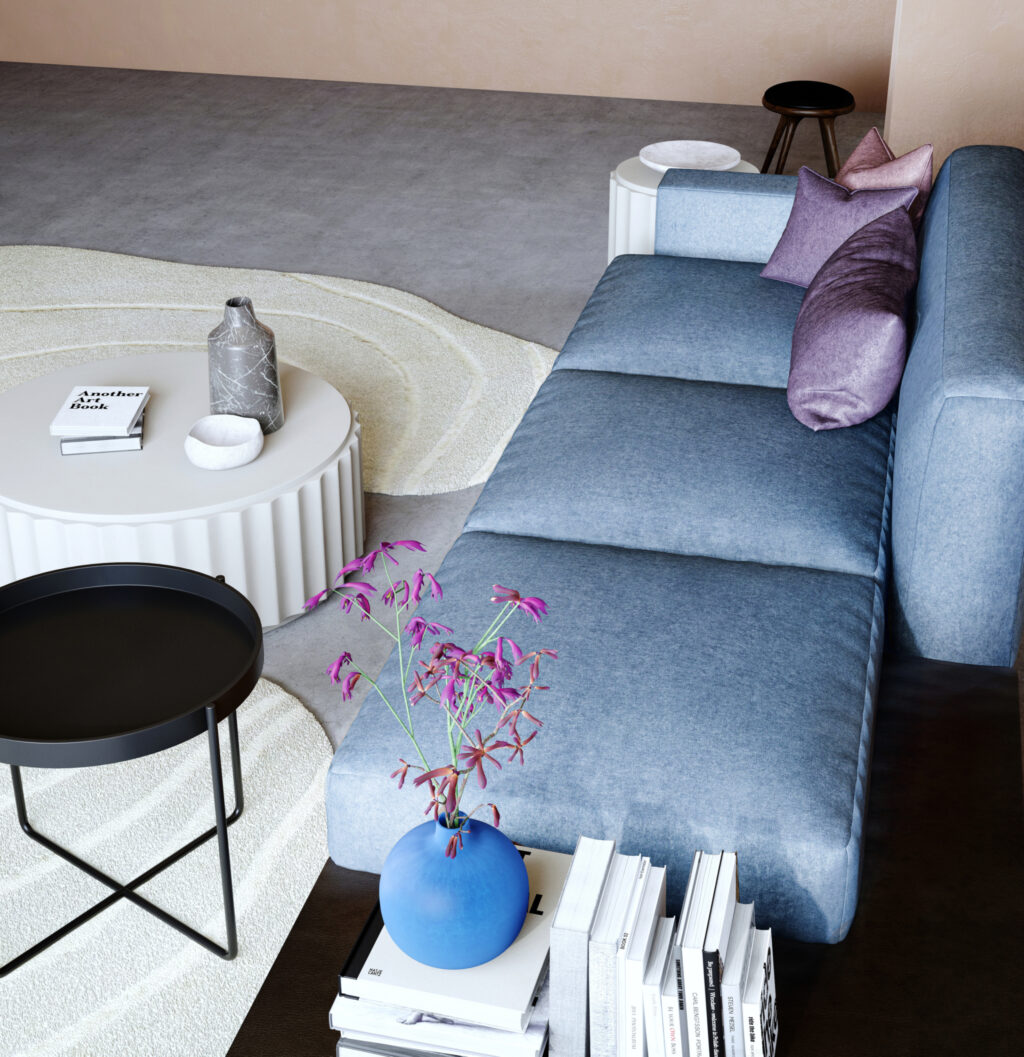Inspiring hospitality design solutions for small spaces
As urban areas continue to grow and space becomes a premium, the hospitality industry is faced with the challenge of creating inviting and comfortable environments in increasingly smaller spaces.
In this blog post, we explore how hospitality designers are embracing this challenge and transforming small spaces into cosy, functional, and memorable experiences for guests. We delve into the world of small-scale hospitality, boutique hotels, mini experiences, community spaces, and elevated private rooms.

As well as making a space appear more inviting, our fabrics – which come in a wide range of textures, tones and patterns – offer stain-resistant technology and high-performance durability. Related read: How to design indoor public spaces

Read all about the trends and challenges facing the future of the hospitality industry on our blog! First up: Do your hotel interiors tell successful stories?
Small-Scale Hospitality: Big Impact, Small Footprint
Small-scale hospitality refers to the trend of creating intimate and personalized lodging experiences in compact spaces. With a focus on efficiency, sustainability, and local culture, small-scale hospitality offers guests a unique and memorable stay without the need for expansive square footage.
Hospitality designers are embracing this trend by incorporating clever space-saving solutions, multi-functional furniture, and thoughtful layouts that maximize the use of available space while still providing guests with a comfortable and enjoyable experience.
Boutique Hotels: A Personalized Touch in a Compact Package
Boutique hotels have gained popularity in recent years, offering travellers a more intimate and personalized experience compared to large, chain hotels. These hotels often feature unique and innovative designs that reflect the local culture and make the most of small spaces.
For example, the Tiny Urban Escapes in Indianapolis offers luxurious, modern "tiny houses" with all the amenities of a high-end hotel room. Each unit is thoughtfully designed to maximize space and provide guests with a cosy and functional retreat.

Tiny Urban Escapes in Indianapolis

The Pod Hotel in New York City
Creating Mini Experiences: Small Spaces, Big Adventures
A key aspect of hospitality design in small spaces is the creation of mini experiences within the hotel room itself. These experiences can range from themed rooms to unique design elements that provide guests with a memorable and engaging stay.
For instance, the Pod Hotel in New York City offers guests a compact yet stylish room with features such as adjustable mood lighting and built-in storage solutions. These design elements not only save space but also provide guests with a unique and customizable experience during their stay.
Prioritizing Community Spaces: Bringing People Together
In small-scale hospitality, community spaces play a crucial role in creating a sense of connection and belonging among guests. Hospitality designers are focusing on creating inviting communal areas that encourage interaction and foster a sense of community.
The Moxy Hotel in New York City, for example, features a rooftop lounge, a co-working space, and a lively bar area that seamlessly blend together, providing guests with a variety of spaces to socialize and relax.
Elevating Private Rooms: Small Spaces with Big Style
In addition to designing functional and engaging community spaces, hospitality designers are also focusing on elevating the private rooms in small spaces. This can be achieved through the use of unique design elements, clever storage solutions, and a focus on creating a cosy and inviting atmosphere.
The Zoku Loft in Amsterdam is an excellent example of this approach. Each loft is designed with a flexible layout, allowing guests to easily transform the space to suit their needs. The use of warm colours, natural materials, and innovative storage solutions creates a cosy and functional space that feels much larger than its actual square footage.

The Moxy Hotel in New York City

The Zoku Loft in Amsterdam
The Future of Hospitality Design in Small Spaces
As we have seen, hospitality designers are rising to the challenge of creating inviting and memorable experiences in small spaces. Through innovative design solutions, a focus on community spaces, and an emphasis on personalization, these spaces are proving that size is not a limitation but an opportunity for creativity and innovation.
As urbanization continues to increase and space becomes even more valuable, the importance of hospitality design in small spaces will only grow. Designers who can successfully navigate these challenges will play a crucial role in shaping the future of the hospitality industry.

From hotel bedrooms to lobbies, FibreGuard fabrics are durable enough to withstand all decoration use purposes. Learn more.

Interested in learning more about designing for hospitality? Start here: The Future of Textile Design for Contract Interiors
FibreGuard performance fabrics, perfect for contract hospitality applications
FibreGuard performance fabrics have become a go-to choice for designers and furniture manufacturers when it comes to creating stylish and functional hospitality spaces.
These high-performance fabrics offer advanced stain resistance, easy-to-clean capabilities, and long-lasting durability, making them ideal for use in hotels, restaurants, and other commercial spaces. They have also been deployed in outdoor spaces, providing optimal fade protection to withstand varying weather conditions.
Further, with a keen eye on sustainability, FibreGuard has invested in digital fabric technology that drives innovation while minimizing the environmental impact of the textile industry.